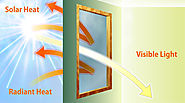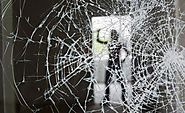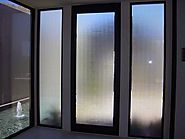-
About
- About Listly
- Community & Support
- Howto
- Chrome Extension
- Bookmarklet
- WordPress Plugin
- Listly Premium
- Privacy
- Terms
- DMCA Copyright
- © 2010-2025 Boomy Labs

Listly by technicaltinting-clearbraltd
Think window tint is just for your automobile? Well, think again. While window tint may have been originally invented for use on automobile windows, over the years it has evolved and is now regularly used in residential, commercial and security applications as well.

Most window films available today block approximately 99% of harmful ultraviolet (UV) rays. Prolonged exposure to UV rays can lead to sunburn and even skin cancer. UV rays also cause the breakdown of dyes and pigments in most materials resulting in color fading. These rays can also cause the materials themselves to slowly disintegrate. By blocking 99% or more of these damaging UV rays, window tint helps prevent premature fading and aging of the materials insider your home, office or vehicle as well as providing your skin protection from sunburn and skin cancer. In some cases, doctors have begun prescribing window tinting for patients that are especially vulnerable to UV skin damage.

In addition to blocking UV rays, most window tints on the market today also provide protection from infrared (IR) radiation, which transfers heat. In automotive applications, due to the small amount of space in comparison to the number of windows, the blocking of IR radiation helps keep the interior of the vehicle more comfortable for passengers. In residential and commercial applications, blocking IR radiation helps homes and buildings reduce heating and cooling costs. As much as 30% or more of the average U.S. home’s energy costs can be attributed to the transference of heat through a home’s windows. While some of this can be attributed to air leaking through window seals or frames, as much as 50% of this loss is a result of heat transferred by IR radiation.

One of the most noticeable benefits window tint provides is glare reduction. Window tint reduces the amount of visible light allowed to pass through the glass. As a result, it helps reduce glare, improving visibility in harsh lighting conditions. This is not only benefit in residential situations, but also vital in automobiles and security situations. Over the past 20 years a number of studies have been conducted to determine if the reduction of visible light through tinted automobile windows was linked to increased traffic accidents. Although no direct correlation has ever been found, the window tint industry has invested millions in research to address these concerns. Their research has led to the development of crystalline window films that still provide the UV protection, heat blocking and glare reduction benefits of standard window tint, while allowing anywhere from 40% to 90% of visible light through.

While the materials used to make various types of window tint vary in composition and thickness, all window tints provide glass some level of protection against shattering. In automobiles and security applications, this protection is extremely beneficial. In traffic accidents it helps to prevent windows from shattering and causing passengers additional injury. Manufacturers also offer a special, thicker form of window tint known as “security tint” that is designed to help prevent glass from breaking. Security tint is a much more cost effective means of providing security than replacing windows with security glass.

Due to window tint’s ability to block the transfer of visible light, it has become increasingly popular as a means of providing privacy in automotive, residential, commercial and security applications. Most states now have laws regulating how “private” window tint on vehicles can result in concerns for traffic and law enforcement officers’ safety. In residential, commercial and security treatments however, this is typically not the case and window tint manufactures have developed a variety of privacy window tints to meeting consumers’ needs. Privacy window tints for non-automotive applications can be opaque, mirrored one way and even decorative in nature if required.